
RESOURCES
Truth-telling resources designed to provoke, challenge, and inspire action.

LEARNING LIBRARY
Discover provocative facts that debunk common myths, surprising revelations that shift perspectives, and straight talk that cuts through the confusion. These resources are designed to make you think differently and inspire you to take control of your cognitive health.
No sugar-coating—just truth that sparks action.
DEFINITIONS
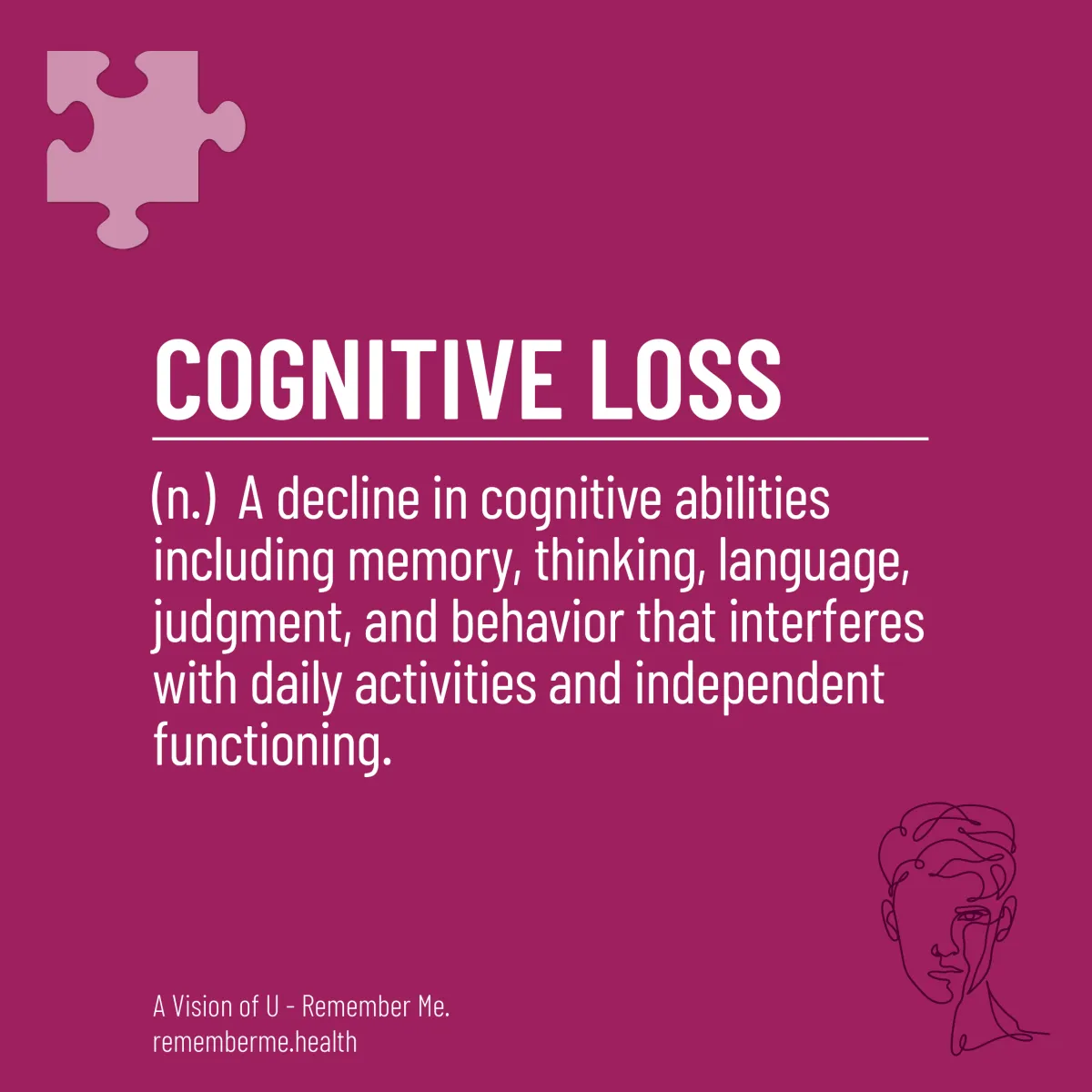
Cognitive Loss
A decline in cognitive abilities including memory, thinking, language, judgment, and behavior that interferes with daily activities and independent functioning.
"Most people don't even know what 'cognitive loss or ‘decline actually means until it's happening to them."
You’ve probably heard this term, but let’s be clear about what it actually means. Cognitive decline exists on a spectrum - from normal age-related changes that don’t significantly impact daily life, to more serious conditions that do require medical attention.
The key is understanding where you or your loved one falls on this spectrum.
Some forms of cognitive decline can be slowed, managed, or even reversed when underlying causes are identified and treated.
Q&A's
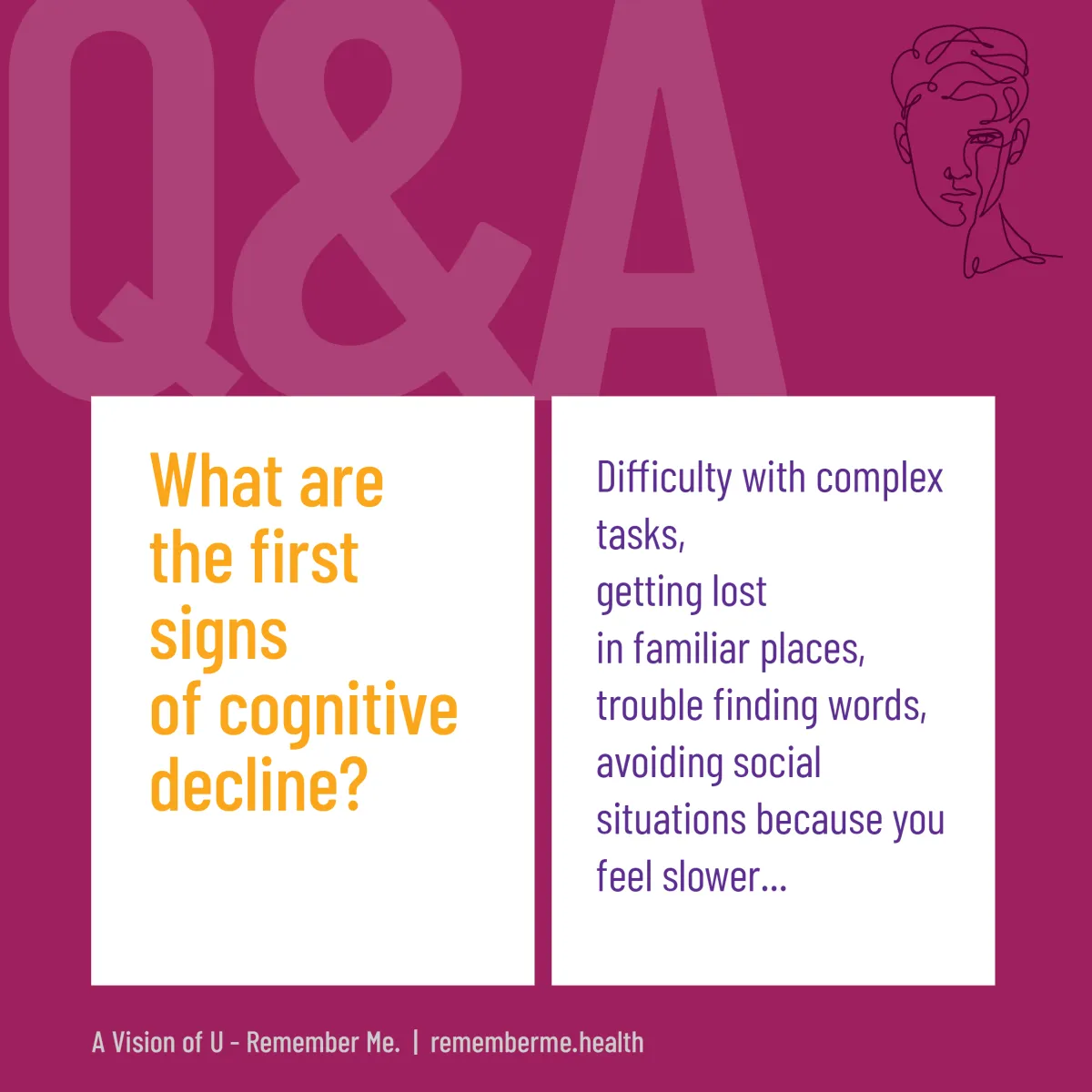
Q: "What are the first signs of cognitive decline?
"The first signs aren't memory problems. They're the things you're probably ignoring right now."
You're waiting for dramatic memory loss, but cognitive decline starts subtly. Struggling with tasks that used to be easy. Taking longer to make decisions.
Avoiding conversations because you can't find words. Feeling overwhelmed by things that never bothered you before.
You dismiss these as "stress" or "tired" when they're actually your brain asking for help.
Which of these "first signs" have you been dismissing as something else? Stop making excuses and face reality.
DID YOU KNOW?
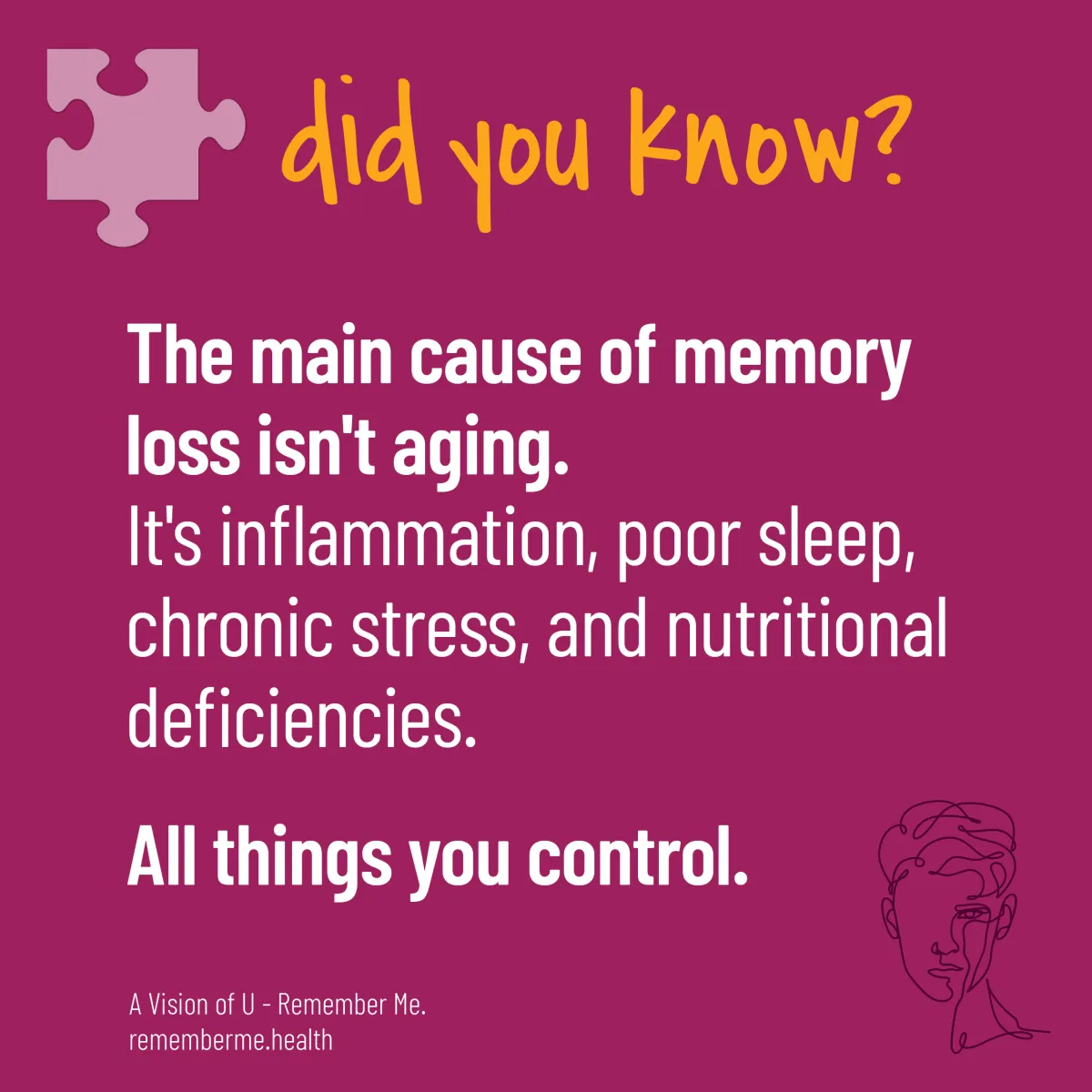
The main cause of memory loss isn't aging...
It's inflammation, poor sleep, chronic stress, and nutritional deficiencies. All things you control."
"You're Googling 'what causes memory loss' at 2 AM because you're scared. Here's the truth nobody tells you."
Yes, genetics and age play a role. But that doesn't mean you're powerless.
The biggest factors destroying your memory RIGHT NOW are things you control: inflammation in your brain from the processed food you eat daily. The sleep you don't prioritize. The chronic stress you refuse to address. The nutritional deficiencies you ignore.
Stop looking for complex medical explanations when the biggest factors are staring you in the mirror. You can't control your genes, but you CAN control these daily destroyers.
Which one hits closest to home: poor sleep, chronic stress, inflammatory diet, or ignoring nutritional needs? Pick one and fix it NOW.
MYTH/FACT
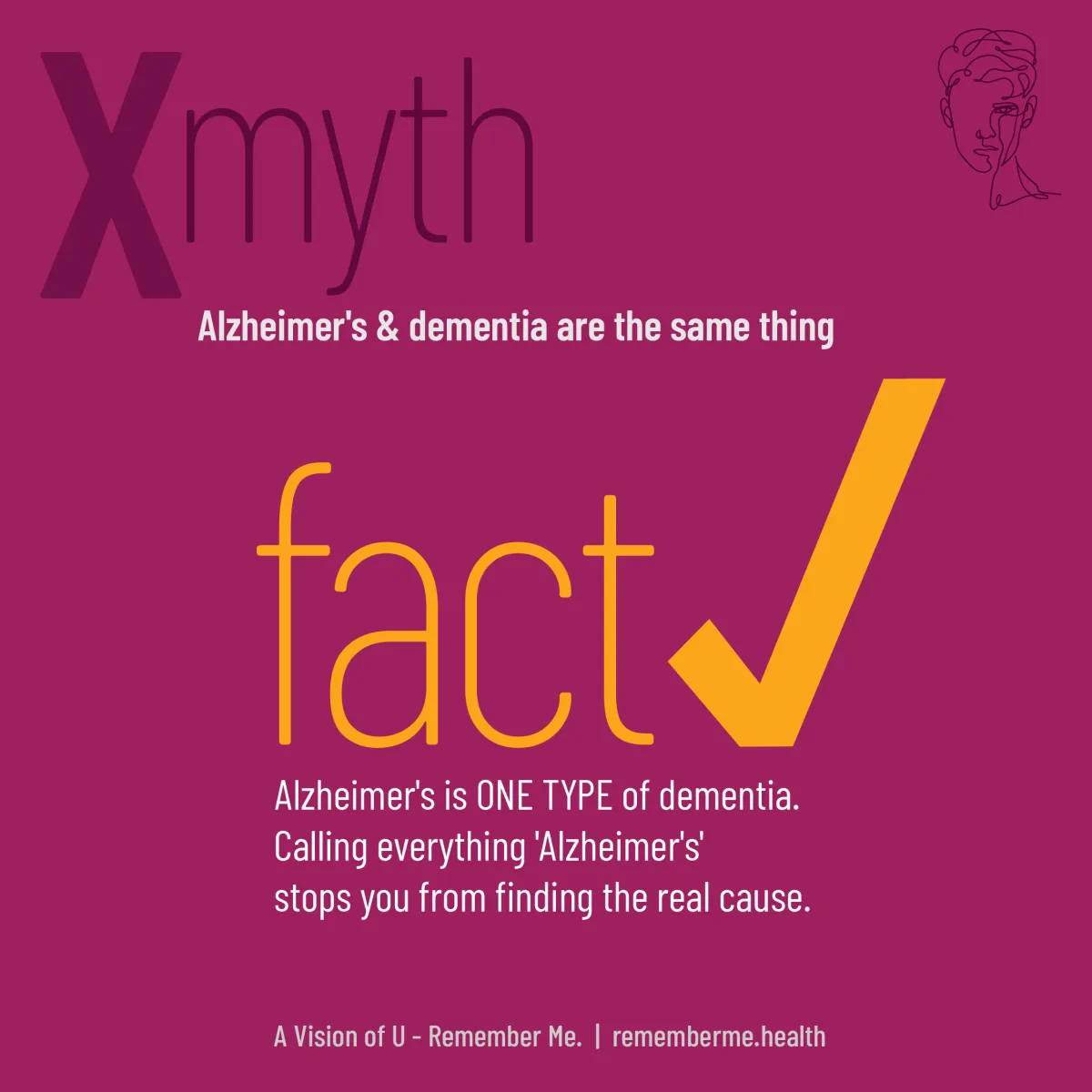
Myth: "Alzheimer's & dementia are the same thing
Fact: "Alzheimer's is ONE TYPE of dementia. Calling everything 'Alzheimer's' stops you from finding the real cause."
"Calling all cognitive loss 'Alzheimer's' is like calling all cancers 'lung cancer.'"
Dementia is the umbrella. Alzheimer's, vascular dementia, Lewy body, frontotemporal - these are specific types under that umbrella. Each has different causes, different treatments, different outcomes.
But you're so terrified of the word "Alzheimer's" that you never find out what you're actually dealing with. You can't fight an enemy you refuse to identify.
Do you actually know what TYPE of cognitive issues you're dealing with, or are you just saying "dementia" because you're scared to be specific?
QUICK POLLS
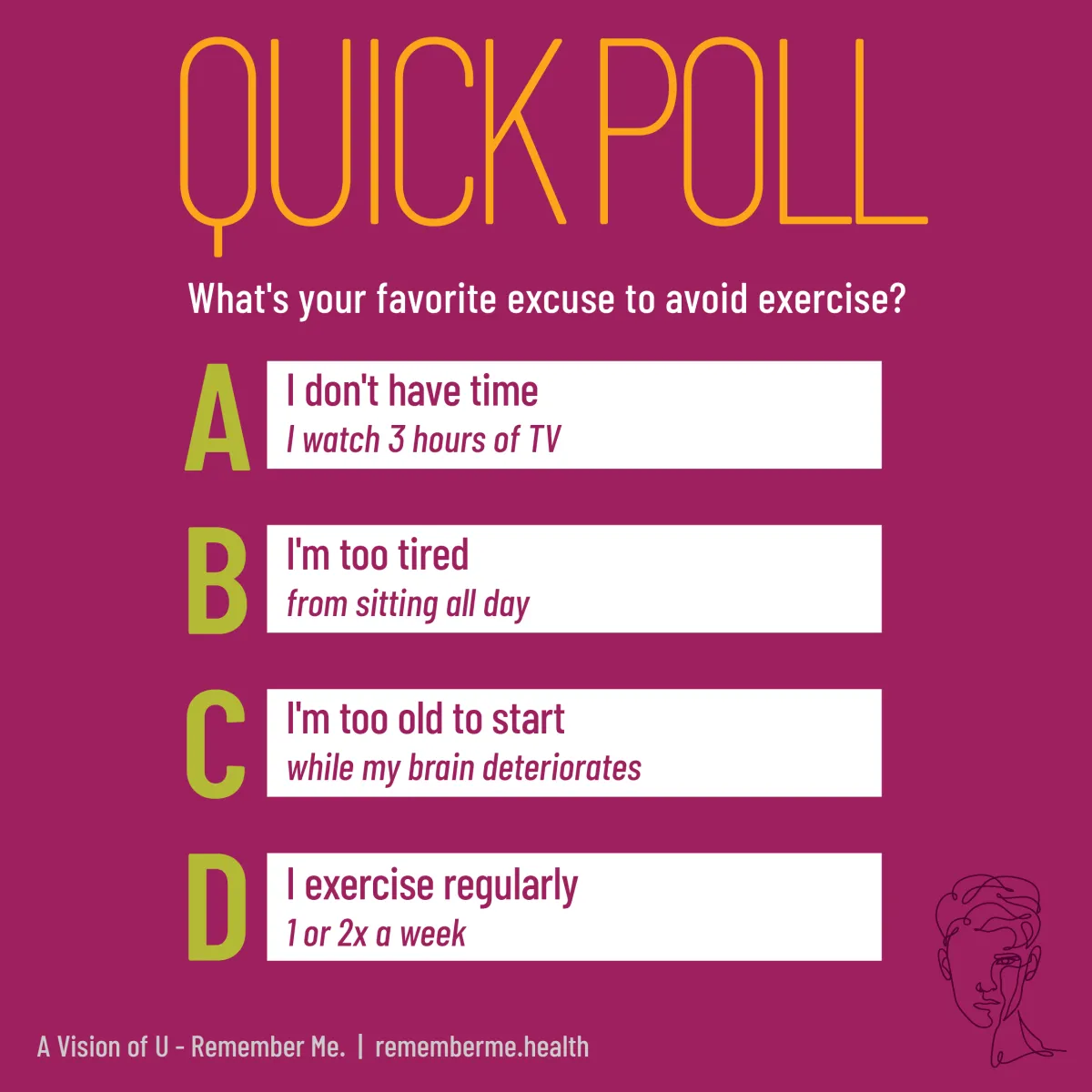
What's your favorite excuse to AVOID exercise?
A: "I don't have time" (but I watch 3 hours of TV)
B: "I'm too tired" (from sitting at my desk all day)
C: "I'm too old to start" (while my performance deteriorates)
D: I exercise regularly for my brain and career
"Your productivity excuses are more creative than your solutions, but they're all killing your professional performance at 2% per year."
Exercise grows new brain cells and improves decision-making, focus, and leadership capacity. But you choose comfort over cognitive performance. Your career advancement depends on mental sharpness, yet you're systematically weakening your most valuable professional asset.
STRAIGHT TALK
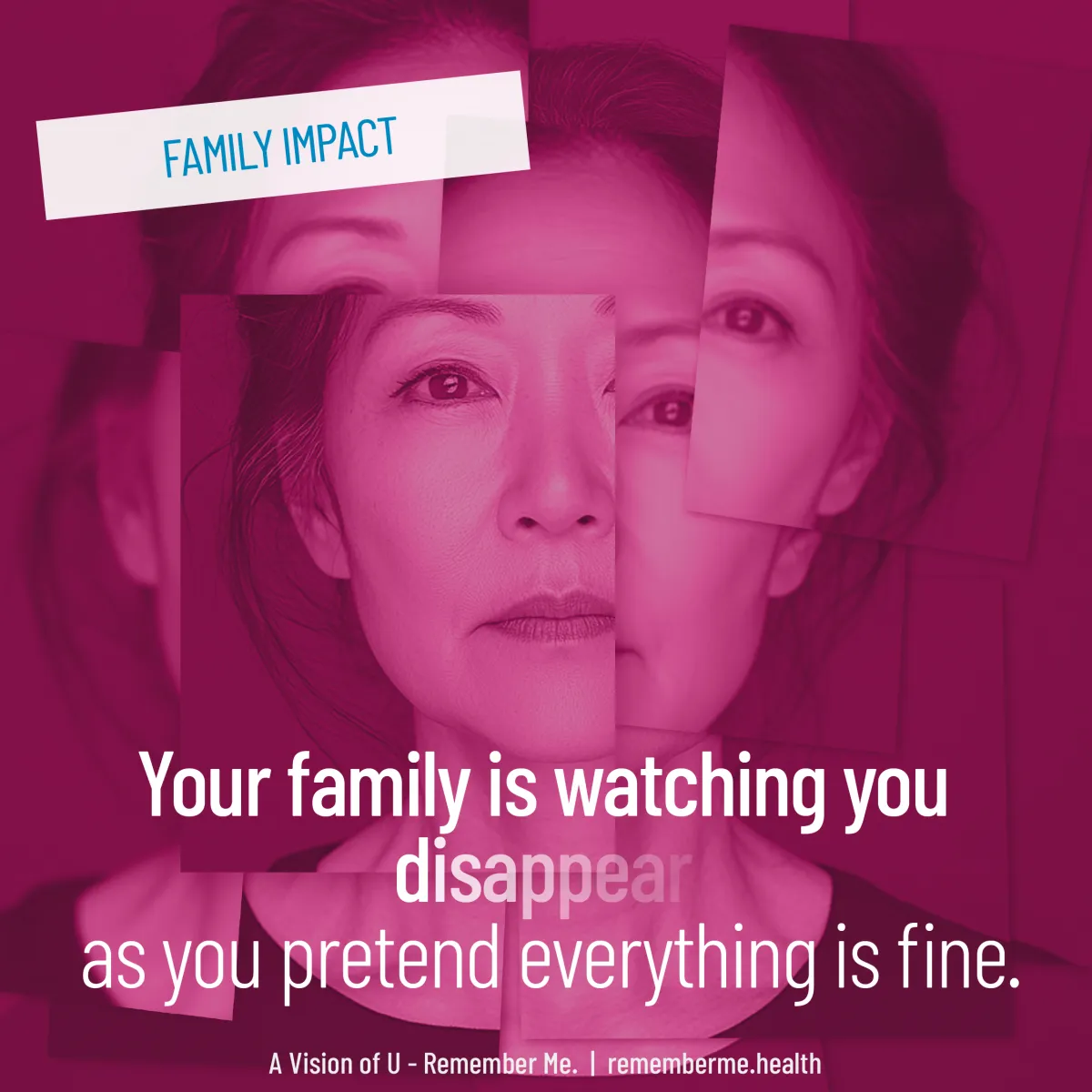
Your family is watching you disappear – as you pretend everything's fine.
"The people who love you most are scared to tell you what they're seeing."
Your spouse notices you asking the same questions repeatedly. Your kids see you struggling with things that used to be easy. Your grandchildren watch you get confused during simple conversations.
But you're so focused on appearing "normal" that you're missing the fear in their eyes. They're losing you gradually, and you're too proud to acknowledge it.
Have you asked your family what changes they've noticed?
CHECK LISTS
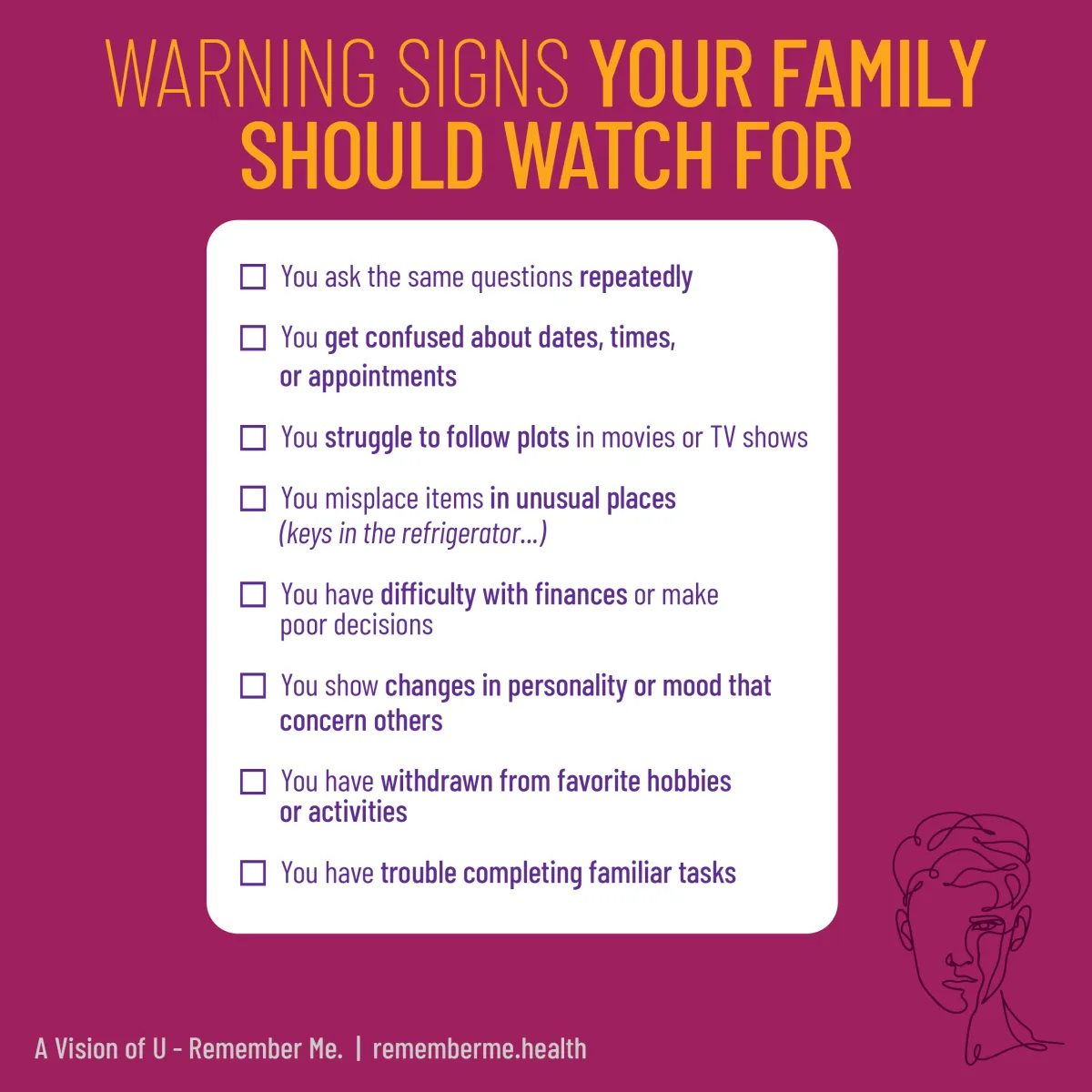
Warning signs your family should watch for.
☐ You ask the same questions repeatedly in conversations
☐ You get confused about dates, times, or appointments you made
☐ You struggle to follow plots in movies or TV shows you used to enjoy
☐ You misplace items in unusual places (keys in the refrigerator, etc.)
☐You have difficulty managing finances or making poor money decisions
☐ You show changes in personality or mood that concern others
☐ You withdraw from hobbies or activities you previously enjoyed
☐ You have trouble completing familiar tasks that were once routine
The people closest to you see changes you can't or won't acknowledge. They watch you struggle with things that used to be easy, notice your confusion, observe your personality shifts. But they don't know how to bring it up without hurting you. Meanwhile, you're missing critical warning signs that outside observers can see clearly.
Ask someone who knows you well: "Have you noticed changes in me lately?" Their honest answer might save your cognitive future.
QUOTES WITH A TWIST
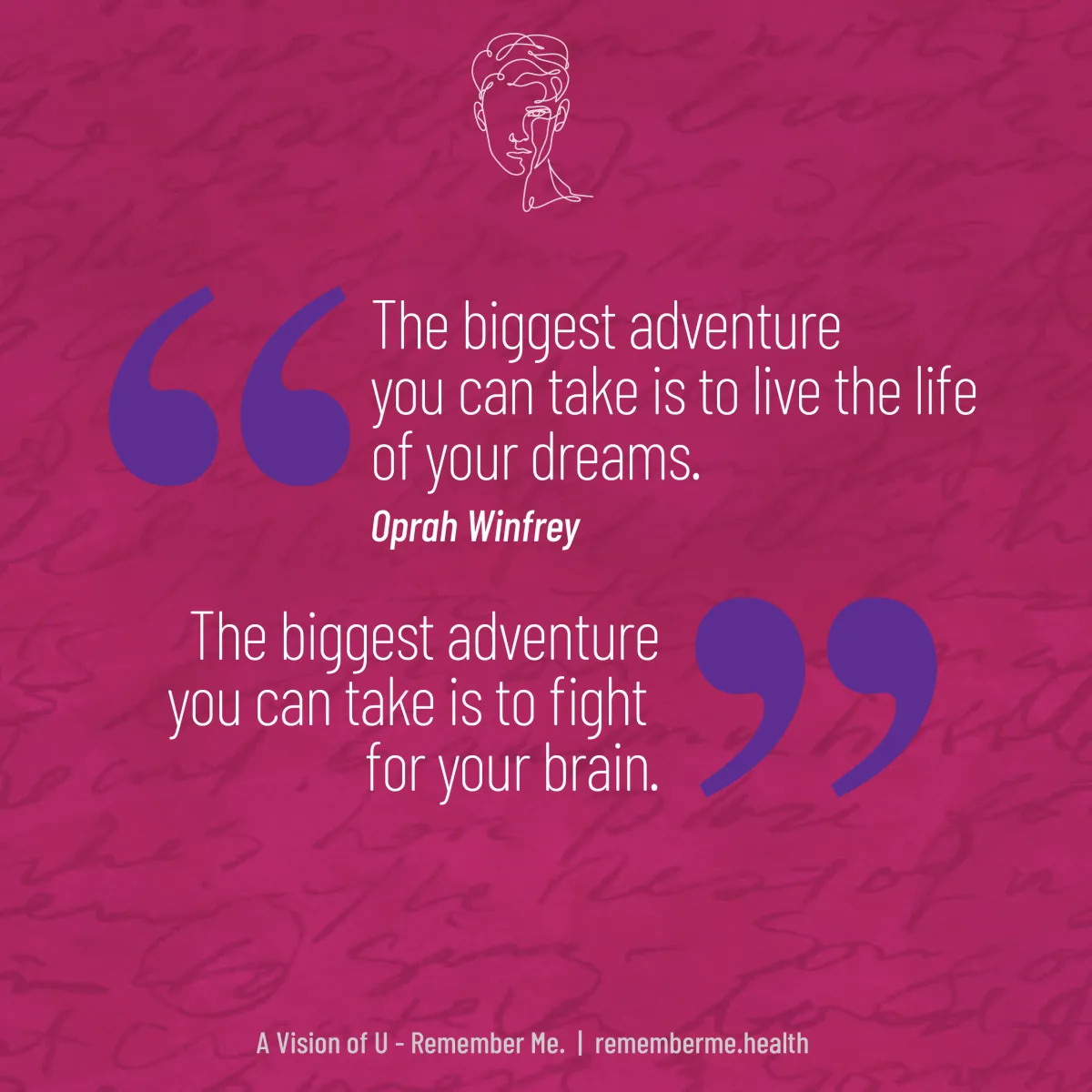
"The biggest adventure you can take is to live the life of your dreams." Oprah Winfrey
"The biggest adventure you can take is to fight for the brain you deserve."
"Oprah built an empire by dreaming big. You won't even dream of cognitive recovery?”
Oprah teaches people to live their dream life, but you've given up on dreaming of a sharp mind.
You've accepted cognitive decline as your reality instead of fighting for the brain you deserve. The biggest adventure isn't some external achievement - it's reclaiming your mental capacity.
Oprah would tell you to stop settling for memory loss and start fighting for cognitive excellence.
Are you fighting for it, or have you given up on that adventure before it started?
VIDEO LIBRARY
These videos use cognitive assessment techniques to help you evaluate your current abilities. From visual memory challenges to everyday judgment scenarios, each video reveals how cognitive changes often appear in daily life—sometimes in ways you might have dismissed as "just forgetfulness" or "normal aging."
Watch these assessments and honestly evaluate your responses. Some results may surprise you, others may raise concerns. That's the point. Awareness is the catalyst for action. Use what you discover here as motivation to take control of your cognitive health.
This engaging memory assessment challenges you to remember everyday objects and recall details from a brief story — a simplified version of professional cognitive screening test. If you struggle to recall all elements, you might wonder: "Is this normal aging or something more?"
This brief exercise reveals how memory challenges can subtly appear in daily life, potentially raising concern regarding you cognitive health.
Discover how you can transform from feeling helpless to becoming optimistic and empowered as you take meaningful steps toward cognitive loss RECOVERY.
This brief video illustrates the familiar struggle of searching for everyday items — keys left in the door, glasses set aside, phones misplaced, wallets forgotten, remotes hidden in couch cushions, and medication doses missed. While occasionally losing track of these items happens to everyone, the video raises an important question: when might these everyday occurrences signal something more concerning?
The progression from minor inconveniences to potentially serious oversights (missed medication)
subtly demonstrates how cognitive changes often appear first in daily routines.
The visual journey invites viewers to reflect on patterns in their own lives that might deserve more attention than simply dismissing them as "just forgetfulness."
Could overlooked everyday decisions be signaling cognitive concerns?
This brief assessment highlights how judgment changes—from missed safety risks to financial oversights—
often appear before memory problems become obvious. Many dismiss these subtle shifts as "just getting older" or "being distracted," potentially missing crucial early warning signs. If you or someone you care about is experiencing changes in decision-making abilities, visit rememberme.health to discover how you can take meaningful action toward cognitive loss RECOVERY.
Transform uncertainty into empowerment with evidence-based lifestyle approaches that make a real difference.
"A Vision of U - Remember Me"
This engaging memory assessment challenges you to remember everyday objects and recall details from a brief story — a simplified version of professional cognitive screening test. If you struggle to recall all elements, you might wonder: "Is this normal aging or something more?"
This brief exercise reveals how memory challenges can subtly appear in daily life, potentially raising concern regarding you cognitive health.
Discover how you can transform from feeling helpless to becoming optimistic and empowered as you take meaningful steps toward cognitive loss RECOVERY.
This 60-second visual and narrative journey reveals how cognitive loss fragments identity — a memory misplaced, a name forgotten, a familiar task suddenly challenging. As a portrait breaks apart into faded, blurred pieces, the voiceover asks the question many fear to confront: "Cognitive loss doesn't just take memories—it takes your sense of self."
But halfway through, the fragmentation reverses. Scattered pieces return to clarity and color as the message shifts from fear to possibility: "What if you could take action today to preserve who you are?" This isn't false hope—it's a call to reclaim your story before more pieces fade.
The visual metaphor delivers an urgent truth: recovery begins with one choice, and that choice must happen now. Discover how proper interventions might help preserve and restore aspects of identity that cognitive loss threatens to take away.
This personal account challenges the dismissive phrase "senior moments" by describing real cognitive struggles — forgetting why I stood up seconds ago, confusing the refrigerator with the microwave, nearly causing kitchen fires due to memory lapses. The raw honesty cuts through polite euphemisms to reveal the frightening reality of cognitive changes that go beyond normal forgetfulness.
The video presents a critical choice point: freeze in fear and do nothing, flee through denial, or fight by taking action. This direct confrontation asks viewers to honestly assess whether their own experiences deserve more attention than the comfortable dismissal of "just getting older."
The message is clear—if you're experiencing concerning cognitive changes, minimizing them as "senior moments" might be preventing you from taking action that could make a real difference.
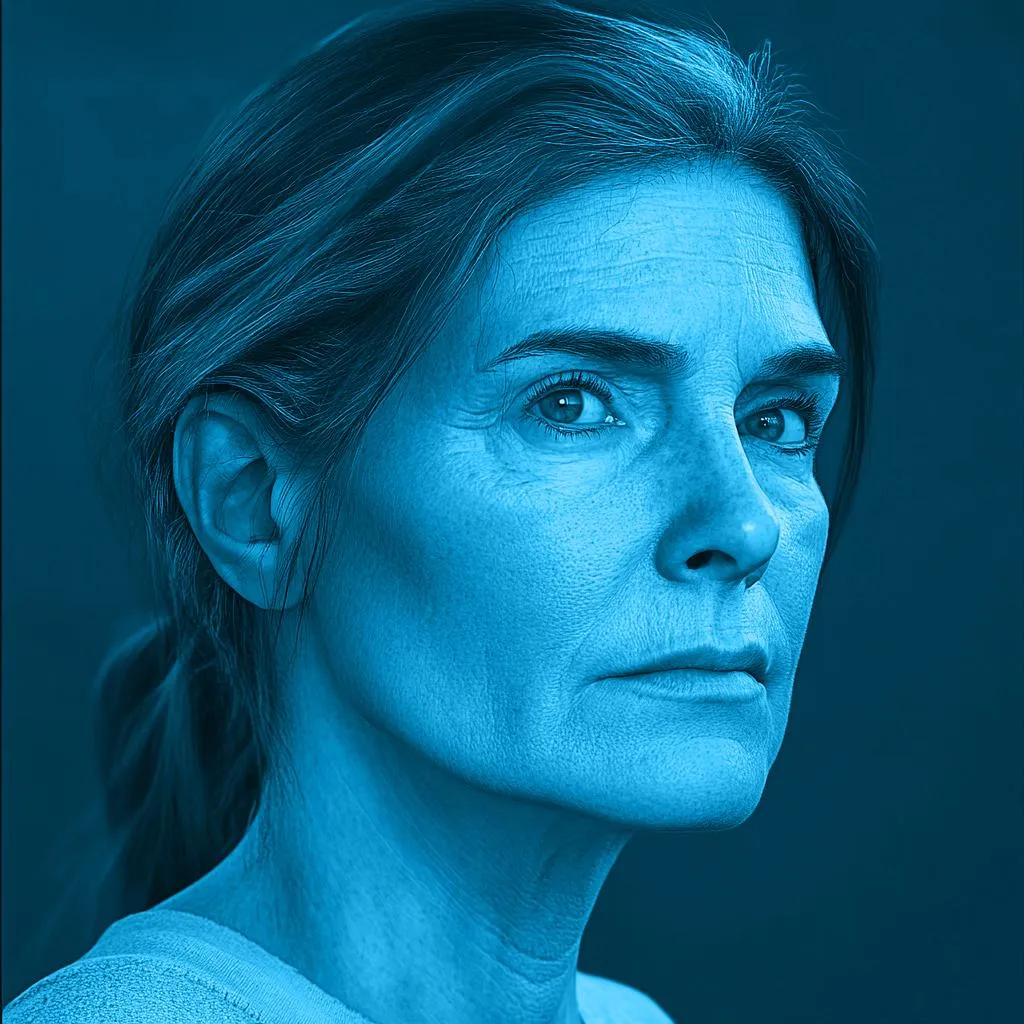




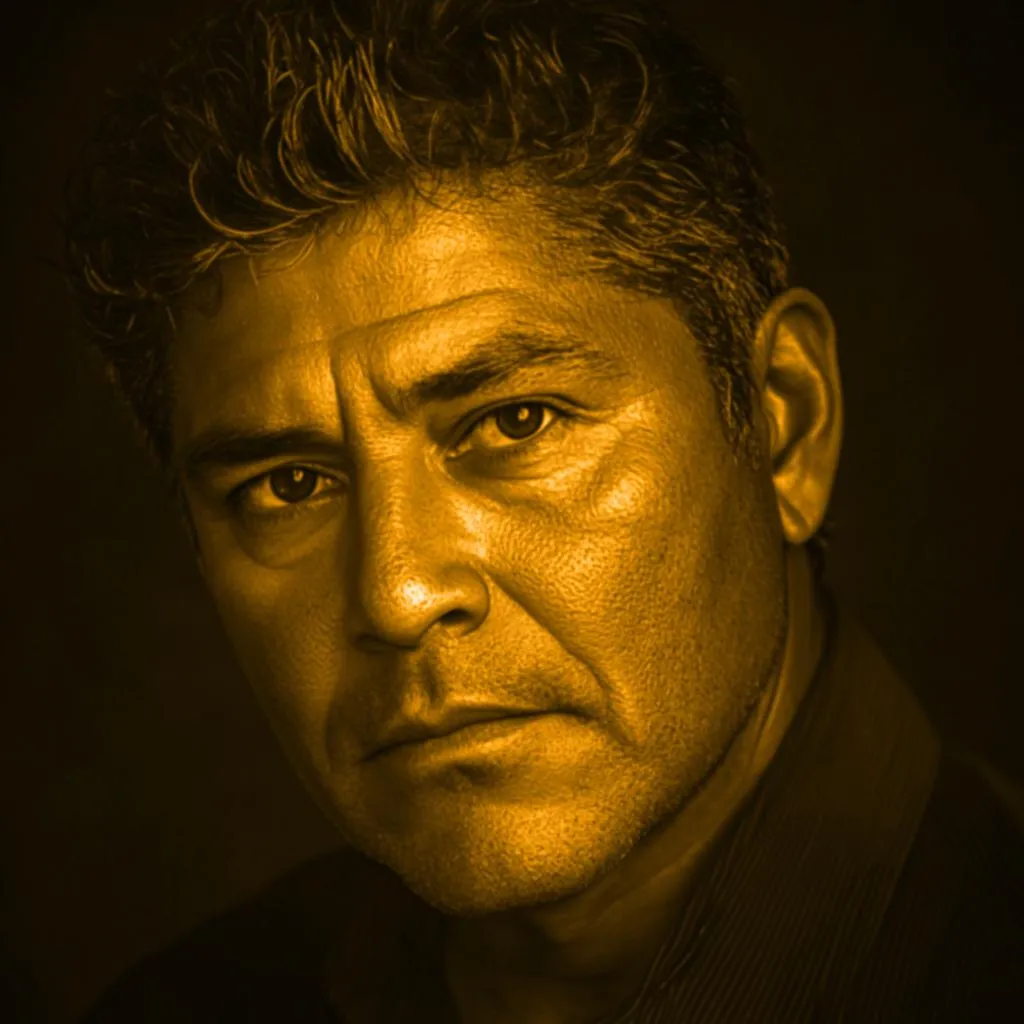
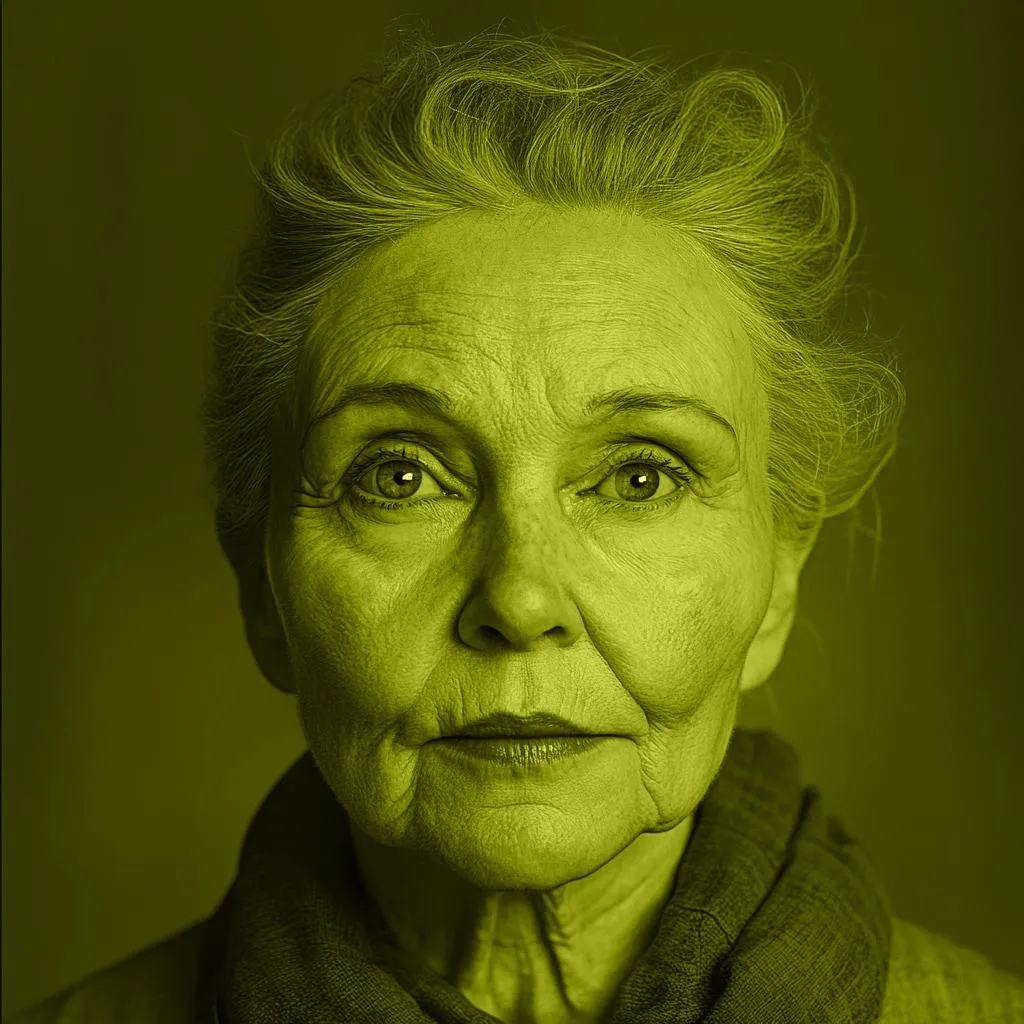


This program is designed to complement medical care and is based on lifestyle interventions supported by current research. While 92% wait for pharmaceutical solutions, this course provides evidence-based tools you can use immediately. The information provided is not intended to diagnose, treat, cure or prevent any disease. Results may vary.
Privacy Policy | Terms & Conditions | © 2025 AVOU&Me LLC